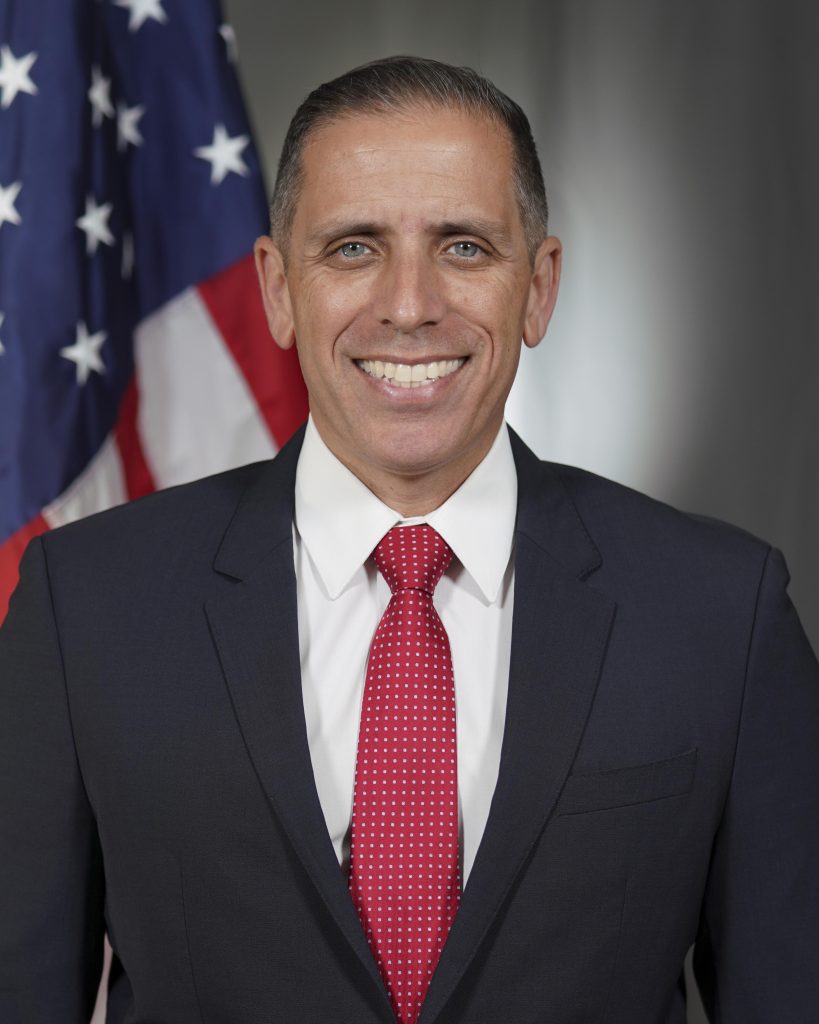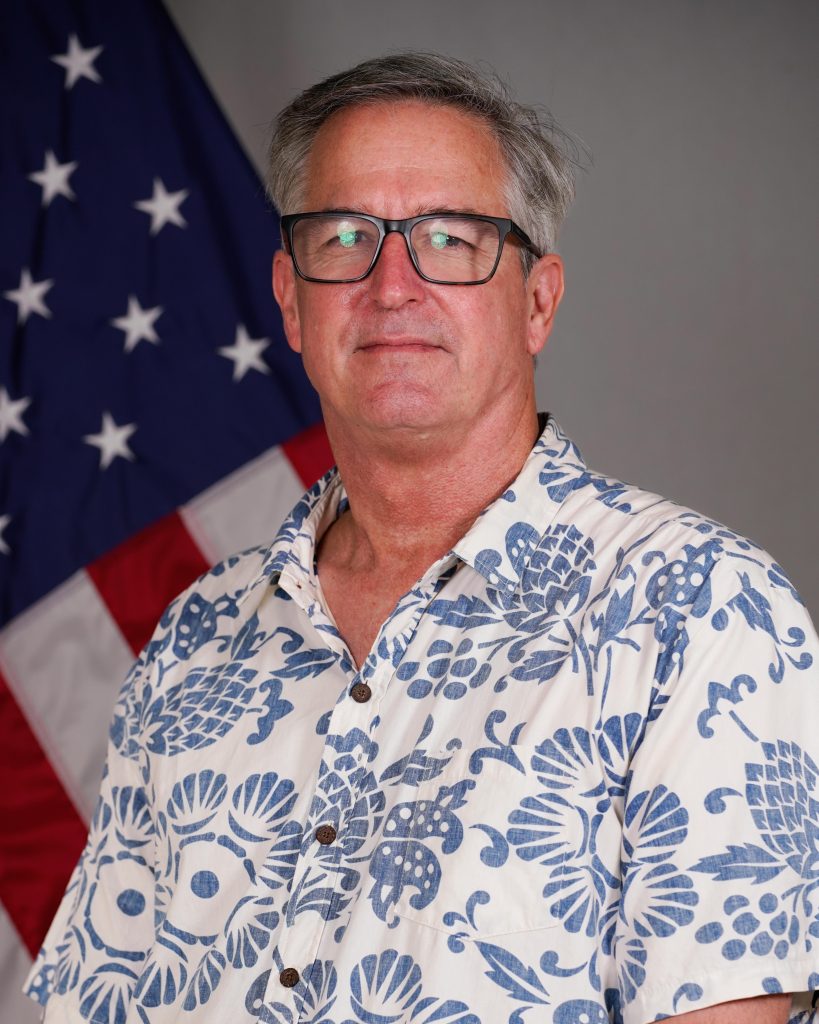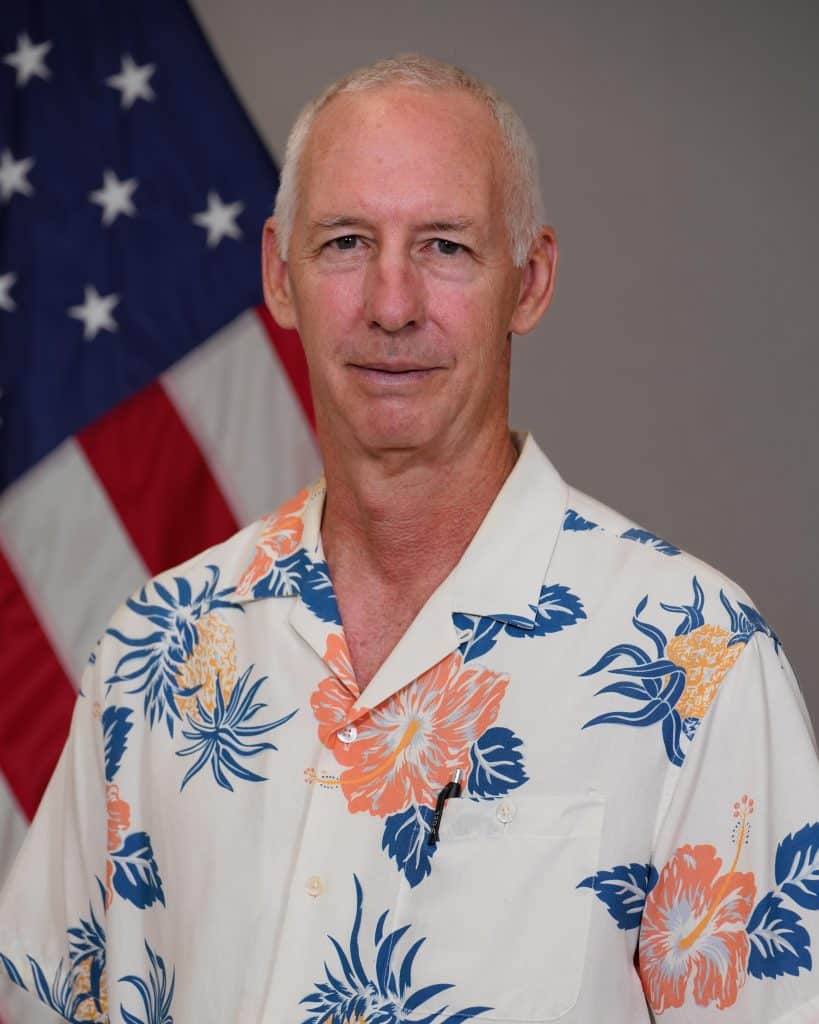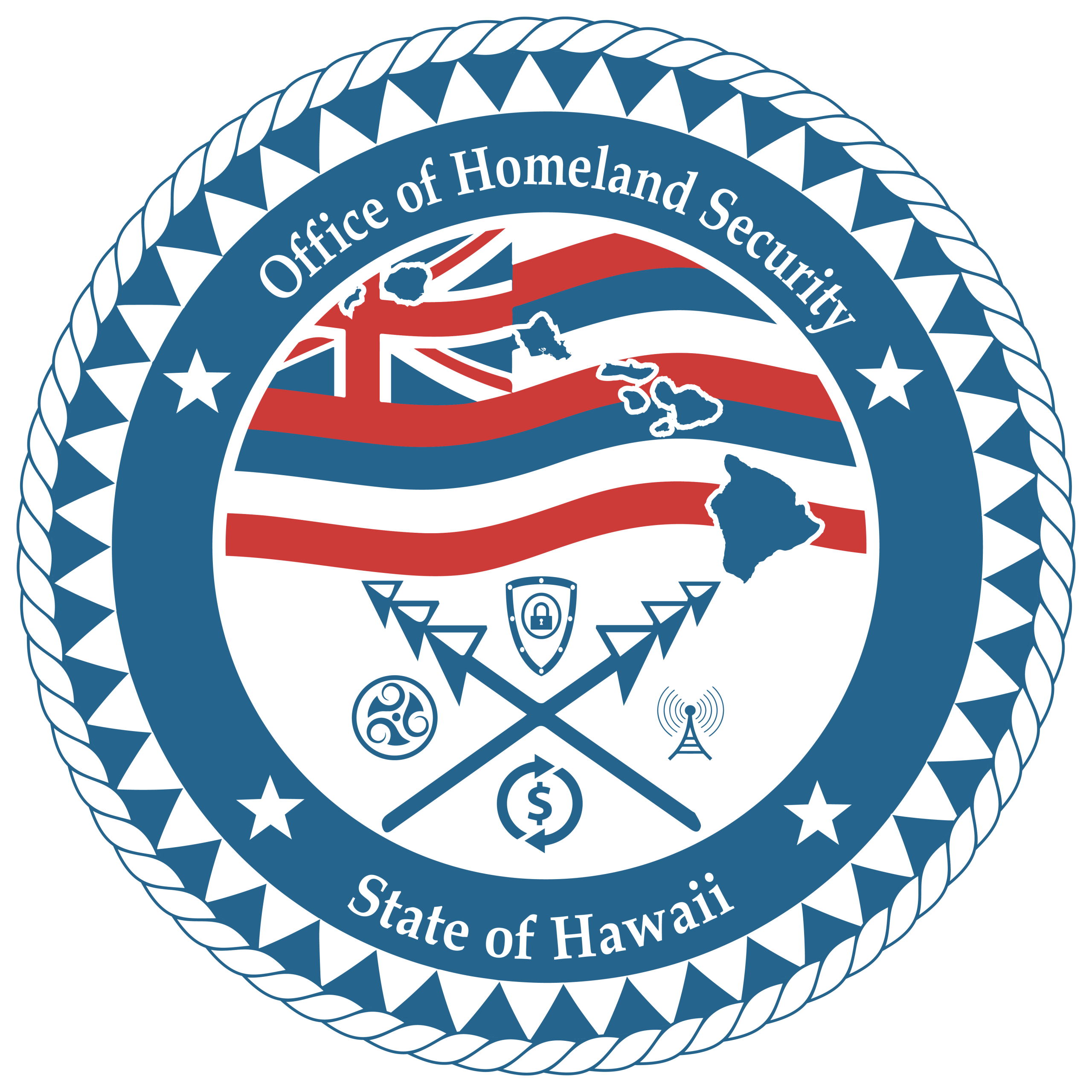About Us
OHS’s primary responsibility is to enhance Hawai‘i’s security preparedness and resilience in an integrated, synergistic, relevant, proactive, flexible, cost-effective, full-spectrum effort across all domains to prevent, protect, mitigate, respond to, and recover from attacks, natural disasters, and emerging threats. OHS has four programmatic functions: fusion center, planning and operations, interoperability, and grants management.

Frank Pace
Homeland Security Administrator, State of Hawai‘i Office of Homeland Security
Since 2021, Frank Pace has been leading the Hawai`i Office of Homeland Security (OHS) as its Administrator. His role encompasses oversight of planning and operations, grants management, the Hawaii State Fusion Center, and statewide interoperable communications. During his tenure, Frank has overseen the development and implementation of key strategies in State Homeland Security and Targeted Violence Prevention, as well as the enhancement of Cybersecurity and Critical Infrastructure Protection.
Notably, Frank has directed an extensive expansion of the Hawaii State Fusion Center’s operational capabilities. He successfully led a statewide initiative to combat disinformation and improve information transparency, proving particularly crucial during the Maui wildfires in 2023. These efforts reflected the dedication of the entire OHS team to strengthening Hawai`i’s security and resilience.

Kevin Baggs
Director, Hawai‘i State Fusion Center
Kevin Baggs is currently serving as the Director of the Hawaii State Fusion Center. In this role Kevin oversees the fusion center’s efforts in facilitating the intelligence sharing between local, state, and federal agencies and the public and private sector. Kevin manages a team of analysts who process tips and leads on threats and public safety information through a suspicious activity reporting system and ensures proper dissemination of analyzed threat information to a multitude of public safety partners to prevent targeted violence and terrorism.
Before joining the Hawaii State Fusion Center in October of 2021, Kevin served as senior leader in the Mesa Arizona Police Department with over 28 years of experience. While at the Mesa Police Department, Kevin held a variety of positions that provided him both operational and administrative experience to include assignments managing large scale homicide, financial crimes, and internal investigations. Kevin also stood up the East Valley Fusion Center in Arizona and worked at a federal fusion center in Washington D.C. that targeted gang violence.
Kevin holds a Bachelor of Science degree in Justice Studies from Arizona State University and successfully completed and Executive Fellowship sponsored by the Bureau of Justice Assistance and the Department of Justice.

Jimmie Collins
Chief of Planning and Operations, State of Hawai‘i Office of Homeland Security
Ms. Jimmie L. Collins has served, since February 2020, as the Chief for Planning and Operations at Hawaii State Office of Homeland Security. In this position, she creates and implements statewide planning, develops and fields exercises, and leads the office’s operations for a range of homeland security issues, including terrorism and domestic violent extremism, elections, and cybersecurity. In her position, she also oversees three statewide programs: Critical Infrastructure Security and Resilience, Cybersecurity, and Emerging Threats.
Prior this position, Jimmie served in the Federal Civil Service for nearly 35 years across the Departments of Defense, Treasury, State, and Energy, including overseas tours in Japan, Bangladesh, Afghanistan, and Iraq and travels throughout Asia, the Middle East, and Africa. Most recently, she served as Department of Energy (DoE)/National Nuclear Security Administration (NNSA) Senior Policy Advisor to Indo-Pacific Command (INDOPACOM) Headquarters, in Hawaii. There she handled a broad range of strategic issues and provided advice and in-depth analysis on a broad range of technical, scientific, and policy topics.

Kevin Howe
Departmental Program Officer for Cyber, Economic, Education, Infrastructure Security (CEEIS), State of Hawai`i Office of Homeland Security
His role encompasses development and oversight of the newly formed Criminal Intelligence Unit, Digital Forensics Laboratory and Real Time Operations Center.
These efforts reflect the dedication of OHS to strengthening the Hawai`i Department of Law Enforcement efforts in combating criminal organizations, establishing a statewide digital forensics capability and utilizing state of the art policing technology to enhance traditional policing methods.
Kevin’s background in law enforcement spans thirty years, including service with the United States Secret Service, serving as the Senior Executive for Asia, Oceania and the Pacific, overseeing all operations, investigations and protection. He was a leading force in establishing the National Cyber Investigative Joint Task Force as a focal point for deconflicting cyber related incidents across law enforcement and the intelligence community. He started his law enforcement career as a patrol officer with the Hawai’i County Police Department.
Contact Us
- Administrator
Phone: (808) 369-3570 - Hawaii State Fusion Center Director
Phone: (808) 460-7994
Office of Homeland Security
3949 Diamond Head Road
Honolulu, Hawaii 96816
Phone: 808-369-3570 (new)
